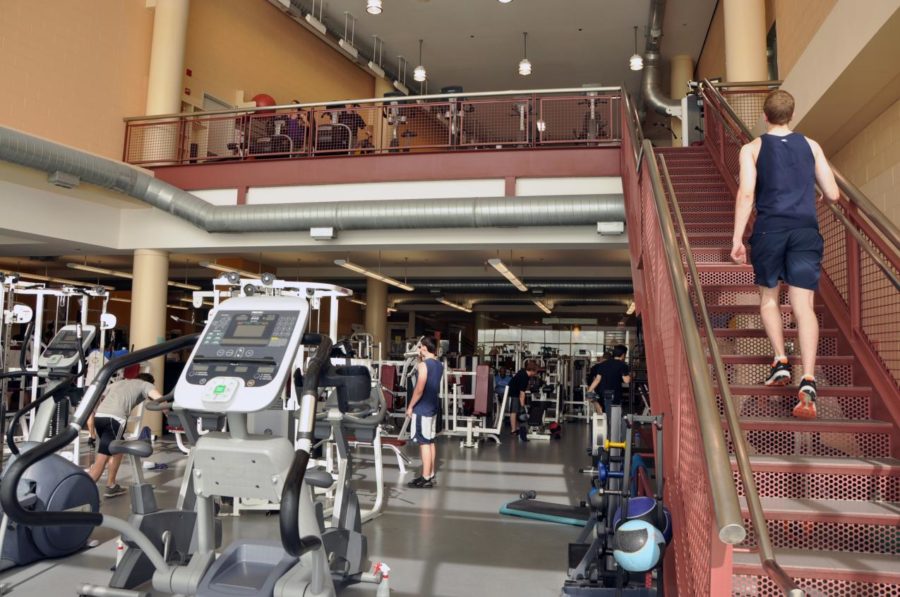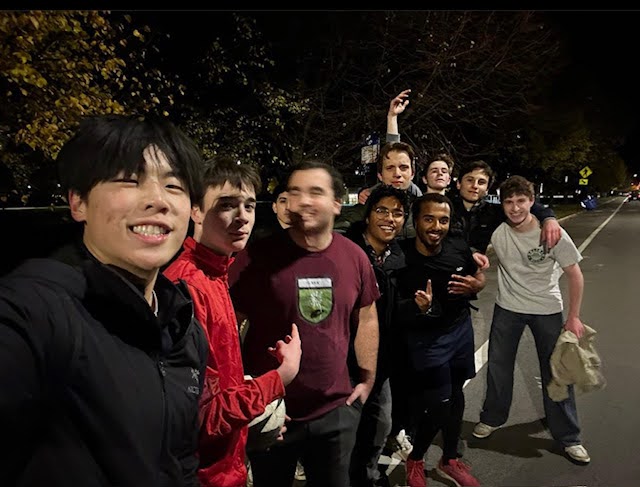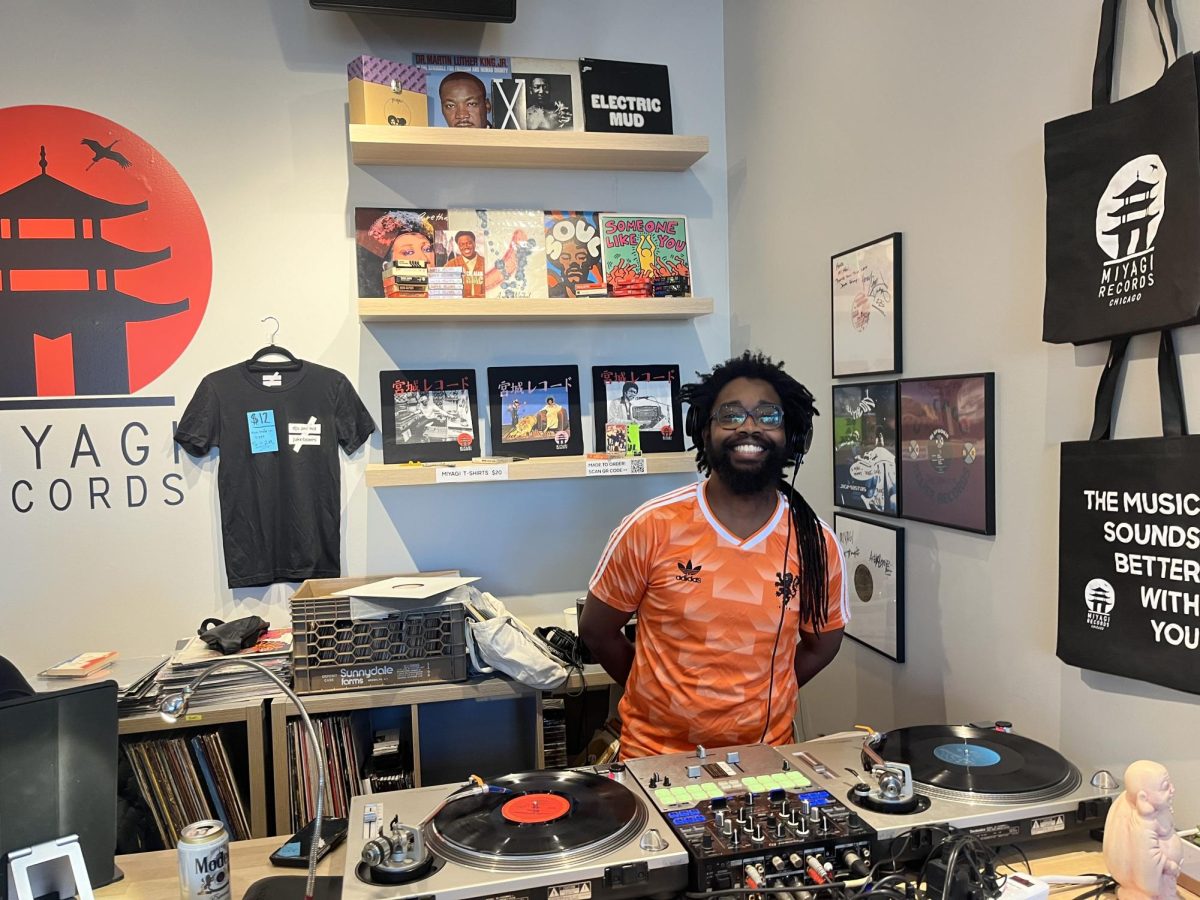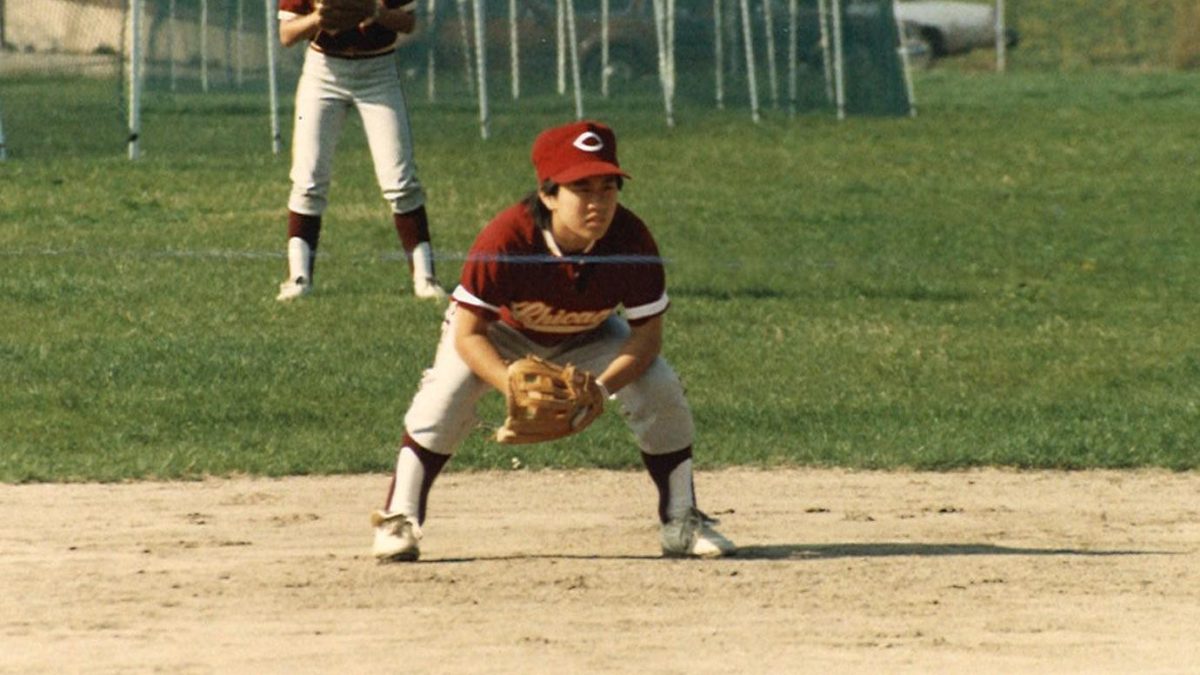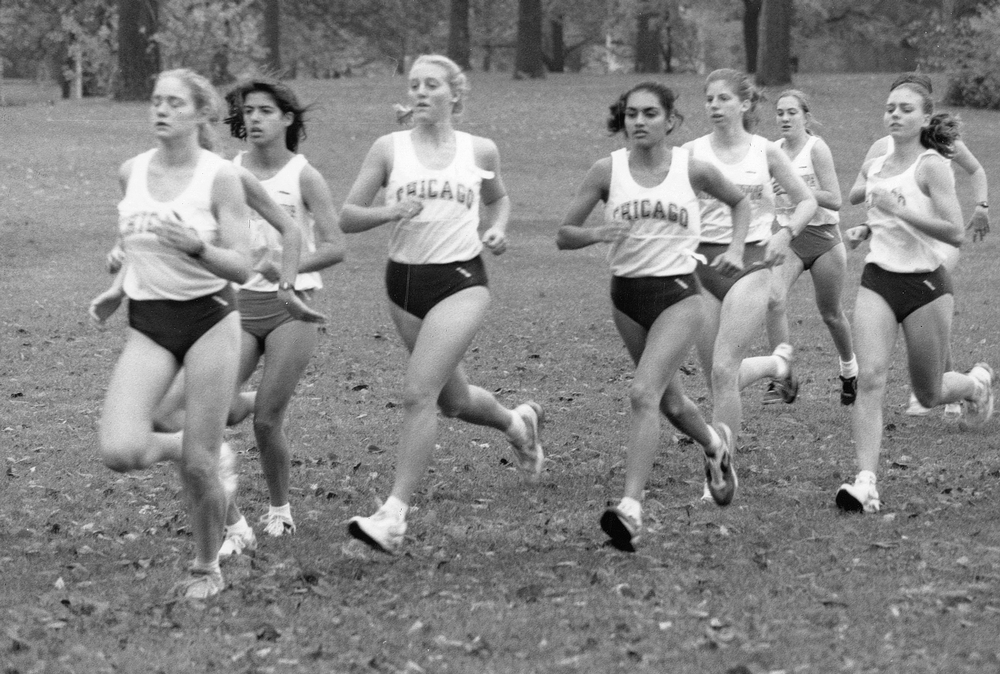Last week, I was introduced to visually impaired runner Adrian Broca (see left for story on Broca). Although several of us on the cross country team had agreed to guide Adrian through the Chicago Marathon, none of us had met up with him until the day before the race, when he visited us at practice. My other cross country comrades and I had just finished the first part of our workout for the day, and as we jogged gingerly around the track in between sessions, I couldn’t help but notice how powerful Adrian looked. His legs rippled up and down with muscle, the look of an individual who had spent many careful hours meticulously honing his body, sanding away all the round edges and leaving nothing but sharp lines in their place.
Watching Adrian finish the marathon was one of the most special sights I’ve ever seen. He lifted his cane into the sky, brandishing it almost like a sword, daring not just anyone, but anything, to try to slow him down. I learned something very important in that moment, something that Adrian has probably known all along: There is absolutely no force that human will cannot overcome.
Every year, the cross country team makes its way down to Chicago and hops into the Marathon, usually around the two-mile mark. We cruise along in the flow of the race for however long our run is that day, and then we jump out. No harm done. I’ve been blessed to have the opportunity to run in one of the greatest races in the world four times now, and when I left the course last Sunday I couldn’t help but get a little emotional. Last Sunday was the last Chicago Marathon I’m ever going to get to run as a member of the University of Chicago cross country team, and for something so special to end so abruptly felt out of place. I’ve learned a lot from the Marathon, things you can’t learn in ivy-covered Gothic buildings, things I want to be able to share now.
The Marathon has taught me that encouragement is incredibly powerful. As cross country runners, we run quite a bit. At times, with our leg muscles heavy with yesterday’s workout, we feel like cantankerous old men and women, and starting up yet another run is occasionally quite difficult. But in the marathon, everything changes. We practically fly through the city streets, floating along easily at paces that ordinarily would tire us out. The streets downtown are the same as the streets in Hyde Park—the only thing that has changed is the thousands of onlookers, yelling encouragement from the sidelines. Words of praise, however minuscule, can make all the difference.
The Marathon has also taught me that the best way to understand something or someone is to engage with it up close. The course winds through many different Chicago neighborhoods, with each one providing a unique experience. One moment you’re in Boystown, with gay men dancing in cheerleading uniforms as you run by. The next, you’re on the Gold Coast, the rails lined with businesspeople on their day off, sipping their morning lattés. Adrian, a Mexican immigrant, heard rapturous cheers of “Corre!” as he ran through Pilsen. Each of these neighborhoods can be read about, studied, and analyzed, but you can never really understand them until you experience them up close.
Despite the thousands of people that compete in the Chicago Marathon each year, I’m always surprised by how easy it is to spot a friend in the crowd. I’ve been running and competing for a long time now, and running the Marathon is always a reminder of how many friends I’ve made along the way. One of my best friends ran his first marathon last weekend. We’ve probably run hundreds of miles together, through blazing-hot summers and icy-cold winters. Sometimes neither of us can shut up and we gab like magpies; other times, we just float along in peaceful silence. Sports are one of the best ways to make friends and meet people because they teach us to be able to confer pain and joy between one another without the banality of words. If the Marathon has taught me anything, it’s that sports are important, not just for us as individuals, but for human beings as a whole. Being “good” at sports doesn’t matter—what matters is going out there and giving it your best, and making as many friends as possible along the way.
Finally, the Marathon has taught me not to underestimate people. As we weave through crowds of other runners, it’s always interesting to see the eclectic mix of individuals running at different paces. Old and young men run side-by-side in the three-hour group, while a woman in her mid-forties leaves them in the dust as she cruises on her way to a 2:40. What I’m trying to say is that, for the most part, you can’t tell anything about how fast someone is going to be until he or she starts running, a lesson that can be broadly applied to pretty much any walk of life. The guy dressed up in the Minnie Mouse costume always surprises people each year with his relentless running. Orangeman, a spin-off of It’s Always Sunny in Philadelphia’s Greenman, is also quite quick. Batman, ironically, usually finishes pretty far back. It must be all the armor.
Even if you’re not registered for the Marathon, take the trip downtown and jog a few miles amidst the crowd. It’ll be an experience you won’t soon forget.


